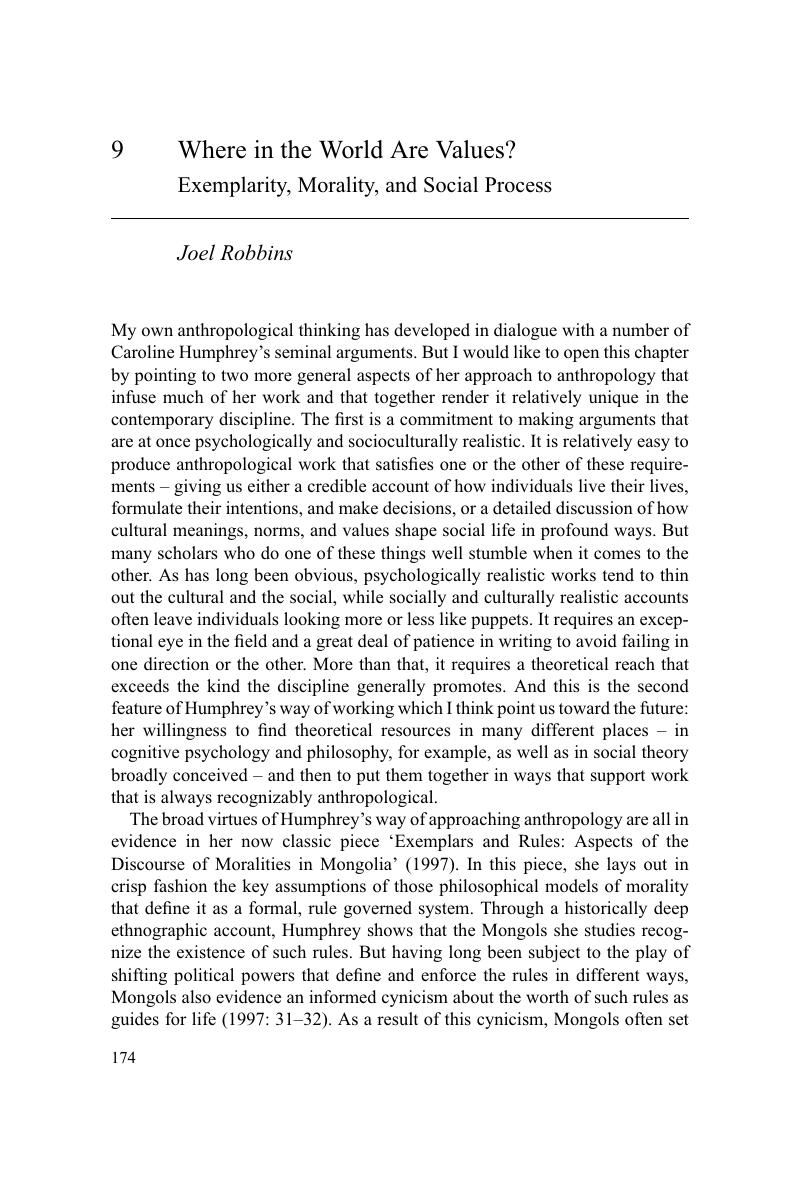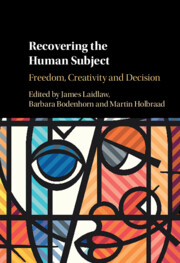Book contents
- Recovering the Human Subject
- Frontispiece
- Recovering the Human Subject
- Copyright page
- Contents
- Contributors
- Acknowledgements
- 1 Introduction
- 2 Reassembling Individual Subjects
- Part I Decision
- Part II Freedom
- Part III Creativity
- 8 Paradoxical Pedagogies and Humanist Double Binds
- 9 Where in the World Are Values?
- Index
- References
9 - Where in the World Are Values?
Exemplarity, Morality, and Social Process
from Part III - Creativity
Published online by Cambridge University Press: 01 February 2018
- Recovering the Human Subject
- Frontispiece
- Recovering the Human Subject
- Copyright page
- Contents
- Contributors
- Acknowledgements
- 1 Introduction
- 2 Reassembling Individual Subjects
- Part I Decision
- Part II Freedom
- Part III Creativity
- 8 Paradoxical Pedagogies and Humanist Double Binds
- 9 Where in the World Are Values?
- Index
- References
Summary

- Type
- Chapter
- Information
- Recovering the Human SubjectFreedom, Creativity and Decision, pp. 174 - 192Publisher: Cambridge University PressPrint publication year: 2018
References
- 19
- Cited by

